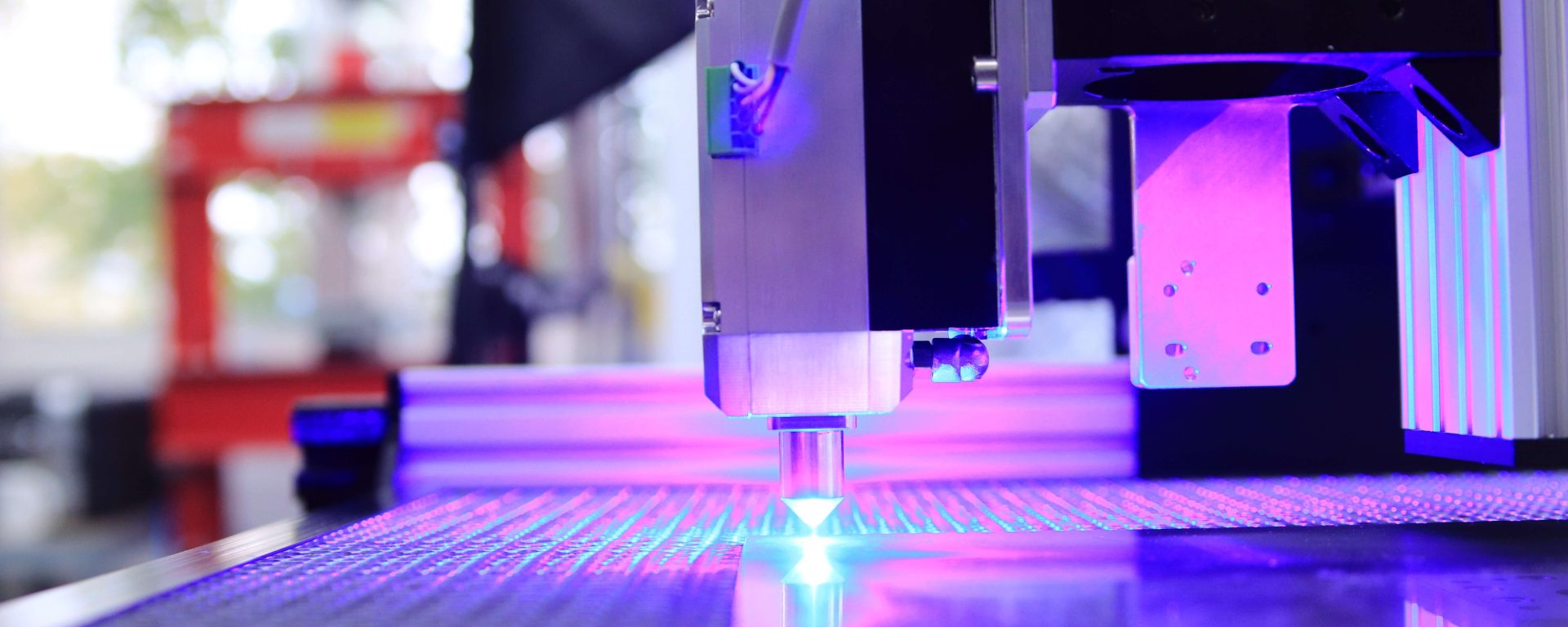Computer Numerical Control (CNC) machining has revolutionized the manufacturing industry — and the jobs available within the field. Every year, CNC machines are used in more and more industries and factories, as they are cheaper, more accurate, and faster than alternative options. This increases the need for experienced machinists and programmers to maintain these complex machines! A degree in CNC machining could put you on track for this exciting and fulfilling career.
At Goodwin University, you can enter this innovative field in as few as 5 months with our highly flexible certificate program that can be completed either part- or full-time. You’ll develop the skills and experience needed to stand out in the industry and get started quickly. CNC machining is used in many different industries, so you could explore job opportunities working in aerospace, nautical, or metalworking companies in high-demand positions.
Read on to learn more about the top three careers you could pursue with a degree in CNC programming.
1. Industrial Machinery Mechanic
Machinery is the foundation of our modern manufacturing system, and all manufacturing facilities need someone who has the experience and expertise needed to help when things go wrong. So, who are they going to call? A mechanic! Industrial machinery mechanics maintain and repair industrial equipment – ensuring that production continues smoothly and consistently.
Responsibilities:
Machinery maintenance workers are responsible for:
- Isolating problems in broken machinery
- Preforming maintenance tests
- Repairing malfunctioning equipment
- Replacing old or worn parts of machinery
- Testing machines after repairs
- And more!
Job Outlook:
According to the Bureau of Labor Statistics, industrial mechanics are in increasingly high demand, with over 53,000 job openings expected each year. That is a projected growth of 14% between now and 2031! With a median salary of $60,000, industrial mechanics is an excellent career option for those with training in CNC machining.
2. CNC Operator or Machinist
In many organizations, there is not much difference between machinists and operators. They tend to have the same responsibilities, though it depends on what company you join. However, machinists typically do not need supervision, whereas operators work under the supervision of a CNC machinist.
If you are looking for a position with more leadership opportunities, then you might want to start out aiming for a machinist role. Leadership positions lead to more advanced career opportunities in the future. Since most companies require some amount of practical experience before starting a machinist career, Goodwin’s CNC machining programs offer plentiful hands-on experience with CNC machinery, so you’ll graduate with all the skills necessary to start out in a machinist position!
Responsibilities:
Common responsibilities for a CNC operator include:
- Adjusting the operating speed of the machine as it runs
- Calculating the amount of material needed for a specific job
- Cleaning and maintaining equipment
- Determining a cutting path
- Helping troubleshoot mechanical or quality issues
- Inspecting items
- Loading materials into machines for cutting
- And more!
CNC machinists have similar responsibilities, with an added supervisory role.
Job Outlook:
The job outlook for CNC machinists and operators is promising, with over 44,000 job openings each year. Although there is no projected growth in job outlook, the openings are expected to remain consistent due to employees advancing in the machining field, finding a second career, or retiring. But don’t be discouraged that the industry isn’t growing — the stability of the field proves that this career has a high probability of professional advancement and promotion, which can come with an increase in salary and benefits!
Ready to start your career in CNC machining? Learn more about how you can earn your certificate in as few as 5 months!
3. CNC Programmers
Even as manufacturing becomes an increasingly automated process, the need for talented and passionate professionals with CNC training only grows. The process can’t be operated without well-written codes, and that’s where CNC programmers come in. They tell the machines what to do and how to do it so that the whole manufacturing process goes smoothly.
Responsibilities:
A CNC programmer’s job responsibilities often include:
- Interpreting project blueprints
- Performing tests to ensure accuracy
- Setting up machinery
- Troubleshooting technical problems
- Writing machine coding
- And more!
Job Outlook:
CNC programmers often work remotely or even freelance, with around 28,000 job openings in 2022. According to Indeed, programmers with a background in Computer Aided Manufacturing (CAM) programming earn an average of 16.5% more than those without. That is why all of Goodwin University’s CNC machining courses have a focus on CAM programming, so that our graduates are prepared with the skills and experience needed to find a successful and high-paying career in CNC machining!
Prepare for your future career
Whether you want to pursue one of these three careers or another option in CNC machining, the manufacturing industry is growing every day as new machines, products, and technologies are created. At Goodwin University, we want to make sure you are prepared for wherever this industry goes by teaching foundational skills and giving you hands-on experience with modern technology. Our expert faculty are equipped with years of experience in manufacturing and will work with you to help you prepare for your career. At Goodwin, we are committed to helping every student succeed.
Learn more about CNC machining at Goodwin and how you can earn your certificate in as few as 5 months!
Goodwin University is a nonprofit institution of higher education and is accredited by the New England Commission of Higher Education (NECHE), formerly known as the New England Association of Schools and Colleges (NEASC). Goodwin University was founded in 1999, with the goal of serving a diverse student population with career-focused degree programs that lead to strong employment outcomes.

